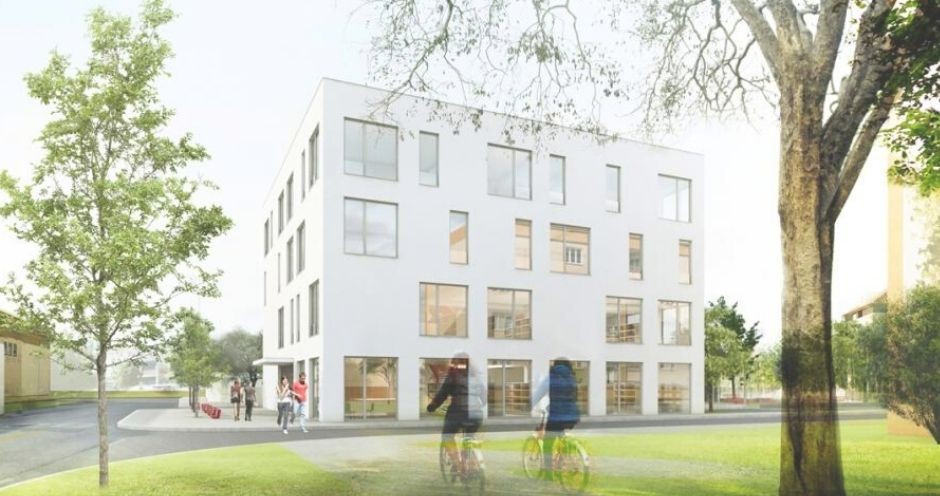The National Recovery Plan (NRP) is a set of reforms and investments that the Czech Republic wants to implement thanks to funding from the European Union, specifically from the Recovery and Resilience Facility, which is part of the EU’s NextGenerationEU recovery support instrument. The transformational impact of the Czech plan is the result of a combination of reforms and investments that address the specific challenges of the Czech Republic. The reforms focus on removing barriers to sustained and sustainable growth, while the investments are directed towards accelerating the transition to a low-carbon and climate-resilient economy, maximising the benefits of digital transformation and improving public administration. The Plan also aims to promote social cohesion and resilience by increasing access to and quality of healthcare, tackling inequalities in education and supporting cultural and creative sectors.
The Czech Republic will receive up to €7 billion from the European Recovery and Resilience Facility (RRF). All reforms and investments must be implemented within a short timeframe, as the regulation establishing the Recovery and Resilience Facility foresees their implementation by August 2026.
The Czech Plan is divided into six thematic pillars, which are further subdivided into components, with green and digital transformation as cross-cutting priorities.
- Digital transformation
- Physical infrastructure and green transition
- Education and the labour market
- Institutions, regulation and business support
- Research, development and innovation
- Health and resilience of population
Development of the cultural and creative sector
Cultural and creative sectors (CCS) were included under the fourth pillar and are under the responsibility of the Ministry of Culture. This component of the Plan contributes to addressing the need to support the recovery of the cultural and creative sectors, which have been severely affected by the COVID-19 pandemic, and to make them a solid part of the overall economic and social recovery of the Czech Republic. The component is also intended to stimulate the transition to digitalisation in the cultural and creative sector and its integration into a more innovative ecosystem. Furthermore, the objective will help to strengthen the resilience of the cultural and creative sector by introducing the status of “artist” in legislation and investing in the skills of artists and cultural workers to support their adaptability to the new, especially digital, work environment. The main objective is the overall reform of the approach to the cultural and creative sector (CCS) in the Czech Republic. The total amount allocated for cultural and creative sectors is €250 mil.

The initiatives within the component, which will target libraries and other cultural institutions, are as follows:
1. Status of the Artist
This initiative will focus on a legislative change introducing the Status of artist. The investment will also support professional associations representing workers in the creative and cultural industries, and the programme will focus on renewing networks, i.e. increasing interaction between schools, universities, businesses and the CCS. There are also plans to invest in further education, in linking culture and creativity with education, and in innovative practices, including support for mobility. Part of the funding will be distributed on a bottom-up basis through the involvement of local players.
Key areas: development of digital, financial and managerial skills, cultural innovation, projects linking arts and culture to the education system and internationalisation.
Libraries can apply mainly in calls focused on the further education of workers in CCS. In the case of libraries, the recipients of subsidies, respectively the submitters of project applications, will be regional libraries and library associations. It is important that the libraries will not only prepare educational projects for their employees, but will also offer various courses for the needs of other cultural and creative institutions within the region, i.e. for museums, galleries, theatres, orchestras and other cultural institutions. The goal of this subsidy program is to develop the knowledge and skills of workers in the field of culture in three areas: digital skills, financial literacy and management skills. The educational areas are formulated in a general way so that project applicants have sufficient freedom in the thematic focus of specific courses.
Digital skills development: will include topics such as cyber security, working with social networks and their analytics, IT infrastructure management, PHP programming in practice, GitHub – practical use, Kubernetes and other.
Financial literacy: the economic minimum for managers, control systems, inventories, property records, economic legislation.
Management skills: project management, change management, strategic management, leadership, managerial communication and presentation, creation of personnel strategies, evaluation and motivation of employees, crisis communication.
This represents an interesting opportunity to develop the skills structure of libraries and other cultural institutions, but it will be the responsibility of regional libraries to prepare a good training project.

2. Development of the regional cultural and creative sector
The funds will be distributed through a subsidy programme specifically for the development of regional cultural and creative centres. The call itself was preceded by a mapping of the infrastructure of CCS in the regions. The aim of the projects is to increase the accessibility of culture and its use as an engine of regional development, and to favour projects that increase territorial cohesion and broaden cultural participation. Priority is given to projects that revitalise existing facilities, contribute to the restoration of cultural heritage or expand the functions of existing cultural institutions.
This initiative is divided into two parts: the development of small cultural centres and the development of big cultural centres. The call aimed at the big centres’ projects has already closed and money (€115 mil.) has been distributed among 30 applicants. One of the approved projects is also a library project. The Municipal Library in Prague received €4 mil. for the Cultural and Creative Centre project in one of the Prague city areas.
The Petřina Centre will become a “laboratory” for verifying procedures for other libraries in the Czech Republic as well as for university students, especially with a pedagogical or more generally creative focus. Space will be intended for the popularization of science, partners from the academic field, institutes of the Academy of Sciences or commercial entities focusing on games, robotics, etc. In relation to trends in the development of libraries, the centre will offer facilities for new authors, will create a space for young/emerging artists – a theatre scene, rehearsal room, including background, mediation of know-how and help in the first steps – and will thus be a pilot project exportable to other libraries in the Czech Republic. In operation, new services will be jointly developed and practically tested before their implementation (Library association SDRUK partner). The project also aims to activate the local scene; it will offer accessible and safe public spaces, rehearsal room, facilities, coworking space, shared offices and more. Local and regional government, organizations of the non-profit sector (associations) and private entities will be involved in the preparation and implementation of the programme part of the project. Public participation in discussions about the future direction of the centre is expected.

“The Petřiny Centre will not only offer a place for readers and books but will become an important cultural and creative centre for the location of Prague 6, but also for the entire region. The total investment planned is to the amount of €9.5 mil.,” Tomáš Řehák, director of the Municipal Library in Prague, explains. “I am glad that the project, whose goal is to revive local culture and support community and creative activities in Prague 6, won the nationwide competition and was supported by the Ministry of Culture,” he adds.
The call for small centre projects will be announced during 2023 and we expect more interest from libraries since most public libraries in the Czech Republic operate in small towns.
3. Digitization of the cultural and creative sector
The initiative for the digitisation of the CCS will also begin by preparing a methodology for digitising cultural content. The aim is to achieve a synergistic effect of digitisation, not just to support isolated projects. In addition to cultural heritage, the digitisation of the Ministry of Culture’s grant system is also envisaged, including the launch of a grant portal.
In this initiative we expect one call focused solely on libraries, but it has not been announced yet. Digitization is part of the remit of Czech libraries and is covered by various resources, but another significant financial budget would be a big benefit for libraries.
The National Recovery Plan is very ambitious, and it is good news that libraries were also included in the Plan. Libraries will get the opportunity to receive extra funding which they can invest in the further education of their employees, extend and offer better services including digital services, strengthen partnerships with other institutions and become more relevant to their communities.
Vladana Pillerová is Head of Study and Information Department at Librarianship Institute at the National Library of the Czech Republic.


